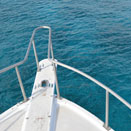 DIVE LOCAL – A Dive Industry Community Effort
DIVE LOCAL – A Dive Industry Community Effort
Building a Local Diving Community
By Gene Muchanski, Executive Director,
Dive Industry Association, Inc.
CHAPTER 12 – Follow-up and Review
Following up on actions taken to make your Local Diving Community a more productive network is the most important step in the problem-solving process. It is all too common to see a number of vocal individuals constantly complaining about the activities or lack of activities in a local diving community. It is even more frustrating when the same individuals recommend possible solutions to the community’s problems and then do nothing about it. What is commendable, however, are the individuals who put an action plan together and work together to make the local diving community better. The untold truth about this stage of development in the problem-solving process is that most well intended improvement projects fail soon after this stage begins. It is sad, but most of the time it is not the fault of any one person. Without proper follow-up and review, people can get tired of working on a project, or they lose interest in the process, or they accomplish some things and start to experience diminishing returns for their efforts. Whatever the case may be, the follow-up and review process needs to be well thought out and implemented on an ongoing basis.
The follow-up process begins with having definable goals on the things you are working on to accomplish. Your planned outcomes should have milestone points that reflect your level of achievement. Knowing how your actionable items (inputs) are contributing to your planned outcome, you can set up an estimated time of completion or an incremental quality / quantity completion. Scheduling periodic reviews will tell you and other volunteers how you are progressing toward completion. It can also tell you if you are gaining ground or losing ground on your project. By monitoring your periodic progress, you can tell if what you are doing (inputs) are working or not. At any time, you can always regroup and change your actionable items if what you are currently doing is not working. If your inputs are working as planned, you can either continue what you are doing or increase your efforts for a faster resolution to your planned outcome.
The follow-up and review process can be a very social way of building local relationships. It brings dive industry professionals together, builds comradery, and gets things done on an organized basis. Periodically reviewing your work gives you a sense that the actionable items you chose to improve the community is working. It’s the acid test of problem solving. If it works, that’s great. If it is not working, then at least you are aware of it now. The best thing is that you can always tweak your inputs to make things progress more smoothly, rather than having to reinvent the wheel every time you are faced with a problem that needs working on.
When the review process is complete and your planned outcome is achieved, your local diving community can tackle another project. May even one that is a little more challenging. There really is no end in sight when a local diving community works together as a team. Your volunteer committee can work together to solve problems, or create local diving activities, or conduct a local dive show. If your group works well together you can create opportunities for the entire local diving community, not just one business or individual. This brings the whole problem-solving process full circle.
For more information on building Local Diving Communities, contact Gene Muchanski, Executive Director, Dive Industry Association, Inc., 2294 Botanica Circle, West Melbourne, FL. Phone 321-914-3778. Email: gene@diveindustry.net web: www.diveindustry.net
# # #
